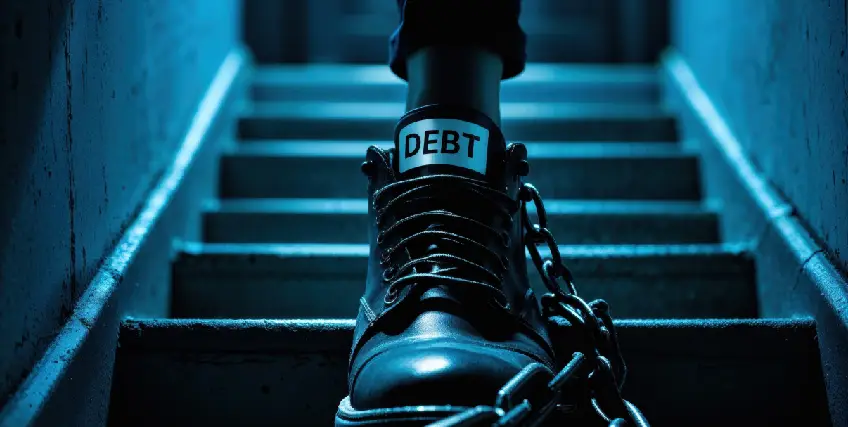5 Factors to Consider in Liquor Store Loan in California
April 03, 2025 | Last Updated on: April 03, 2025

Are you thinking of buying a liquor store?
Owning a liquor store in California can be very lucrative. However, purchasing one using an inaccurate business valuation could result in significant consequences.
Consider the following key factors when developing a valuation to help you decide whether to purchase a liquor store in California. Doing so will help ensure it’s financially healthy, a good investment, and worth getting a liquor store loan in California for.
1. The Liquor Store’s Financial Health
Whether you want to take over an existing store or buy a franchise, you must review its financial statements and business plan.
Look carefully at the last three to five years’ business metrics:
- What is the store’s annual revenue, gross profit, and net profit?
- How complete is its balance sheet?
- Are its annual sales trending up, or do they vary year to year? (Or worse, are they trending downward?)
- Why are store sales and revenue performing the way they are? Is it because of exceptionally good management or exceptionally bad?
- Are you seeing any ongoing issues you should be concerned about?
Review the business plan to see if the projected cash flow over the next year will be able to cover the cost of a package loan in California (if one is needed), regular expenses, and still earn you a reasonable profit.
If you don’t feel you have the knowledge and experience to evaluate the financial health of the liquor store or franchise, partner with an accountant or other financial professional. A small investment in their time could help prevent many headaches in the future, especially when it comes to paying back a liquor store loan in California.
2. Your Own Financial Health and Sources of Financing
The financial status of the liquor store isn’t the only thing to consider. You need to look at your own financial health, as well.
If you’re like most small business owners and entrepreneurs, you’ll need a liquor store loan in California. Few people can purchase a liquor store or franchise without it.
A rule of thumb is to aim for a credit score of 700 or more. It is typically considered the benchmark for getting relatively low interest rates on package loans in California and favorable terms. If your score is less than that, you could end up spending a lot on interest payments. If this is the case, even if you purchase a fairly valued liquor store, you rack up interest on your liquor store loan in California.
If you think you will need a liquor store loan in California to purchase a liquor store in the state, take time to review:
- Your personal and business credit scores
- Tax returns
- Bank statements
- Personal and business debt obligations.
Review everything you can to determine how to improve your financial position and earn more favorable lending terms on package loans in California.
Use a calculator to determine the cost of a for your liquor store so that you can feel confident you are able to run the store effectively with the added debt.
Also, research the types of package loans in California and small business loans for liquor stores in California best suited for your needs. Look into:
- Government-backed Small Business Administration (SBA) loans
- Term loans from traditional banks and alternative lenders
- Liquor store inventory financing in California
- Liquor store franchise loans in California
- Commercial real estate loans if you’re buying a liquor store location
- Equipment loans to help purchase computers, refrigerators, point of sale (POS) system, inventory management system, and more
- Business credit card to cover everyday company expenses
- Business line of credit to handle emergencies and take advantage of opportunities.
Securing the right amount — and type — of financing at the best possible terms will help ensure you have adequate working capital to meet payroll, cover your rent or commercial property loan payments, buy inventory, pay for repairs, and more
3. Alcohol Distribution
The United States alcohol sales industry operates as a three-tiered system.
- Manufacturers create the products.
- Distributors sell those products to retail operations, including liquor stores, restaurants, and bars.
- Retail businesses, restaurants, and bars sell the alcohol to the public.
Meeting with distributors is a critical component of coming up with your valuation. Often, distributors have monopolies on specific brands in geographic areas. That means you won’t be able to source particular items from different distributors to get the best deal. You’ll be forced to pay a given price for it or not carry it, which could be a bad business decision with certain popular liquors.
One option is to buy in bulk and earn discounts. However, many stores cannot buy, store, or sell many cases of liquor, wine, or beer.
Understanding distribution will help you assess your current situation and profit-making abilities. It will also help prevent costly surprises later.
Tip: Speak with another liquor store owner to get their perspective on liquor distribution in your area.
4.Laws, Regulations, and Licensing Requirements
Liquor retailing is a highly regulated industry. You must become familiar with the laws related to alcoholic beverage sales at your store’s location. State, county, and local laws impact how much liquor you can sell and to whom at what cost. All these regulations can affect liquor store profitability and make it more or less valuable.
For example, 17 states in the United States have a government monopoly on the sales of one or more forms of alcohol. So, if you’re looking to buy a liquor store in a state that only allows beer sales in licensed liquor stores, that can make the store more valuable. On the other hand, if you’re looking at a liquor store in a state where beer and other spirits can be sold in grocery stores, you’re competing with powerful big-box distributors that can buy in bulk.
You also need to look into what other products you can offer in your liquor store. Some state liquor regulations, like those in Colorado, don’t allow liquor stores to sell any foods that aren’t directly related to drinking alcohol. Not being allowed to sell profitable non-alcoholic products in your retail establishment will negatively affect your business valuation.
Licensing is also a critical factor to consider. Liquor licensing laws vary from state to state. Some states allow a liquor license to be transferred between business owners (outgoing to incoming). If that’s the case, the price of the license can be included in your valuation.
However, in some states, you’ll need to apply for a license of your own, which can be very costly. Licensing can cost as little as a couple hundred dollars or as much as five figures. They also tend to take a while to process. You could wait up to 12 weeks to receive your liquor license in a state like Ohio. That is a time when you will be forced to pay certain business expenses but will be unable to sell liquor.
5. Location of the Liquor Store
Your liquor store's location will perhaps have the most significant impact on its valuation and cash flow.
Of course, you must consider the laws and regulations we’ve already covered. You also need to think about the cost and value of the real estate itself, just like you would for any small business.
Don’t forget to check into critical factors like:
- Does the store have bright and prominent signage to attract customers?
- Is it on a main street with high foot traffic or a side alley with little?
- Is it near a shopping center?
- What is its potential client base like?
- Is it a higher-volume, high-demand store with a wide selection or a more boutique operation?
If you acquire a space near a large shopping center in a wealthy area, it will likely be worth more because it presents a solid business opportunity, but it will also have increased operating costs.
Liquor Store Valuation Methods
Most experts agree that there are three methods you can use to calculate your liquor store valuation after considering all the factors in the previous section.
1. Cost valuation. Cost valuation is the sum total of the value of the physical objects included in the store purchase. You’re buying the building, the inventory, and possibly even the licensing. If the seller’s asking price is the peak business valuation of the liquor store because future earnings are factored in, the cost valuation is the lowest since future earnings aren’t included in the cost.
2. Market approach. This technique involves researching the purchase price of similar liquor stores in the area and, considering the factors covered in this article, determining a price.
3. Income-based valuation. In this type of valuation, you examine the store’s pre-existing debt, outgoing cash, payroll, profit margins, revenues, discretionary spending, cash flow, and surplus to determine your purchase price.
The most complete way to determine the actual business value is to use all the valuation types to form a more complete picture of the liquor store’s value. Doing so will help ensure you understand what a liquor store business is worth and that you’re paying a fair price for it.
Pro tip: Hiring a business broker, business appraiser, or other valuation expert and getting a business valuation from them can help ensure you're paying fair market value for your liquor store business.
Frequently Asked Questions About Liquor Store Valuation
What is the most critical factor influencing liquor store valuation?
While factors like local laws, liquor distributors, and business financial health are essential, in the end, it’s about location, location, location. Where your business is located significantly impacts real estate costs and sales potential and should be carefully considered.
How do liquor regulations impact business value?
State, county, and local laws govern who you can sell liquor to and how much you can sell them at what cost. They also cover who else can sell liquor in your area, such as supermarkets and convenience stores. Locations with particularly strict or loose regulations can lower the value of a liquor store.
How does licensing impact liquor store valuation?
It will likely cost you if a license is included in the price of a liquor store. However, it could cost you more if it is not. In some states, getting a permit can be expensive and slow. If it takes months to get a license, it could result in you paying certain business expenses like rent and upkeep without being able to sell liquor.
What do I need to know about liquor distributors?
In some places, the liquor distribution system is open, meaning you can competitively shop for products, get the best prices, and earn a higher profit. In others, distributors may hold a monopoly on certain popular liquors, meaning you and other stores will be selling the same items at the same price, limiting profitability.
What kinds of loans are typical for financing liquor stores?
Some common types of liquor store financing include:
- Government-backed SBA loans
- Term loans from traditional banks and alternative lenders
- Commercial real estate loans
- Equipment loans
- Business credit card
- Business line of credit.
Understanding what you need financing for and selecting the best loan type to meet those needs is critical.




